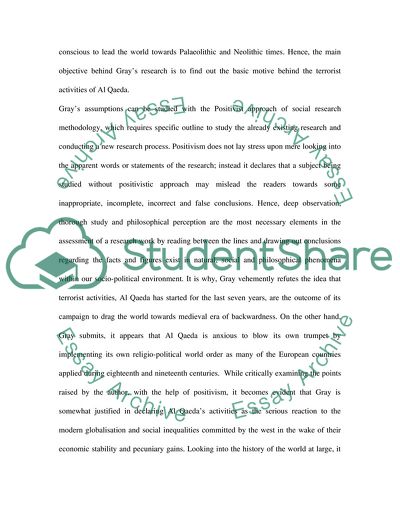Cite this document
(Review on John Gray's 'What Al Qaeda Destroyed' Assignment, n.d.)
Review on John Gray's 'What Al Qaeda Destroyed' Assignment. https://studentshare.org/social-science/1713242-social-science-assignment-write-a-critical-review-of-the-chapter-by-gray-entitled-what-al-qaeda-destroyed
Review on John Gray's 'What Al Qaeda Destroyed' Assignment. https://studentshare.org/social-science/1713242-social-science-assignment-write-a-critical-review-of-the-chapter-by-gray-entitled-what-al-qaeda-destroyed
(Review on John Gray'S 'What Al Qaeda Destroyed' Assignment)
Review on John Gray'S 'What Al Qaeda Destroyed' Assignment. https://studentshare.org/social-science/1713242-social-science-assignment-write-a-critical-review-of-the-chapter-by-gray-entitled-what-al-qaeda-destroyed.
Review on John Gray'S 'What Al Qaeda Destroyed' Assignment. https://studentshare.org/social-science/1713242-social-science-assignment-write-a-critical-review-of-the-chapter-by-gray-entitled-what-al-qaeda-destroyed.
“Review on John Gray'S 'What Al Qaeda Destroyed' Assignment”. https://studentshare.org/social-science/1713242-social-science-assignment-write-a-critical-review-of-the-chapter-by-gray-entitled-what-al-qaeda-destroyed.


